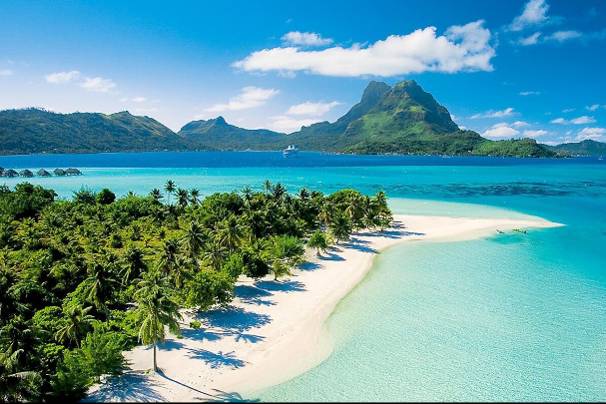The International Collaboration Center for Sustainable Aquaculture and Fisheries (ICAFIS), a unit under the Viet Nam Fisheries Association, has officially launched the “Blue Ocean - Blue Foods” Program, which aims to establish carbon sinks within the fisheries sector. This initiative is considered the starting point for exploiting marine carbon credits in Viet Nam.
The goals of this program are to mitigate the impacts of climate change, reduce greenhouse gas emissions, improve the marine environment, and develop community livelihoods.
According to Vietnamese scientists, there are over 887 species of seaweed, 90 of which have economic value. In 2023, the seaweed cultivation area reached approximately 16,500 hectares, producing 150,000 tons of fresh seaweed. Seaweed and oyster farming are developing into profitable businesses in coastal provinces, where they are cultivated for food, food processing, cosmetics, and pharmaceuticals.
Meanwhile, seaweed grows 30-60 times faster than terrestrial plants, enabling it to absorb 2.4 times more CO2 than land-based vegetation. Additionally, the long molecular chains in seaweed are ideal for producing plastic substitutes, and some bioplastics are already available on the market.
 Viet Nam Launches Blue Carbon Credit Program
Viet Nam Launches Blue Carbon Credit Program
Mr. Dinh Xuan Lap, Deputy Director of ICAFIS, stated, “Seaweed is a green material that can absorb carbon from the atmosphere and neutralize ocean acidification, and it is expected to become a solution to help clean the planet. Seaweed can store 1,500 tons of greenhouse gases per square kilometer.” Additionally, the long molecular chains in seaweed are ideal for producing plastic substitutes, and some bioplastics are already available on the market. In Viet Nam, the potential seaweed cultivation area is about 900,000 hectares, and if effectively exploited, the economic and environmental value would be enormous.
The Deputy Director of ICAFIS explained that the "Blue Ocean - Blue Foods" Program aims to promote responsible participation of stakeholders in mitigating climate change impacts, improving the marine environment, and enhancing community livelihoods. It also aims to raise awareness among coastal communities about climate change and marine environmental protection. Additionally, the program seeks to support enterprises in marine environmental protection through the “Blue Ocean” initiative, promote a responsible and circular economy to minimize climate change impacts in coastal areas through the “Blue Foods” initiative, and foster a responsible seafood alliance with the “Blue Foods Alliance.”
The program will encompass various initiatives, focusing on three primary activities. First, it aims to raise public awareness about climate change and marine environment protection. To achieve this, the program will collaborate with coastal schools to launch the "Blue Ocean Kid Hero" initiative. It will also work with local coastal communities, the Provincial Fisheries Association, the Women's Union, the Youth Union, and coastal schools to implement the "Clean Up Ocean" campaign. Additionally, the program will engage press and media outlets to share and amplify the stories and activities associated with the project.
Second, the program will integrate corporate ESG (Environmental, Social, and Governance) initiatives to protect the marine environment. It will mobilize businesses to participate in communication programs aimed at raising public awareness, coastal clean-up activities, and developing coastal livelihoods that minimize the impact of climate change.
Third, the program will promote a fully responsible economic chain through the "Blue Foods Alliance" initiative, which focuses on minimizing the impact of climate change in coastal areas.
The program will mobilize the participation of businesses in the aquaculture chain linked to the development of seaweed farming in Viet Nam. This will lead to the formation of a circular economic chain of Investment - Cultivation - Processing and Consumption of Vietnamese seaweed. Additionally, it will promote the establishment of the "Blue Foods Alliance," a coalition for responsible seafood production.
Dr. Tran Dinh Luan, Director of the Fisheries Department (Ministry of Agriculture and Rural Development), stated that the program will be very practical. It will not only help improve livelihoods for local people and promote the development of seaweed farming but also help mitigate climate change.
There are many areas along the central coast that are suitable for seaweed farming. Therefore, if carbon credits for seaweed are established and sold, the economic value of seaweed will increase. "Scientists have shown that seaweed provides multiple benefits, including absorbing carbon under the sea. Some seaweed species can absorb CO2 up to 20 times more effectively. Therefore, creating and developing carbon storage within the fisheries sector is something that localities need to consider soon," emphasized Dr. Tran Dinh Luan.